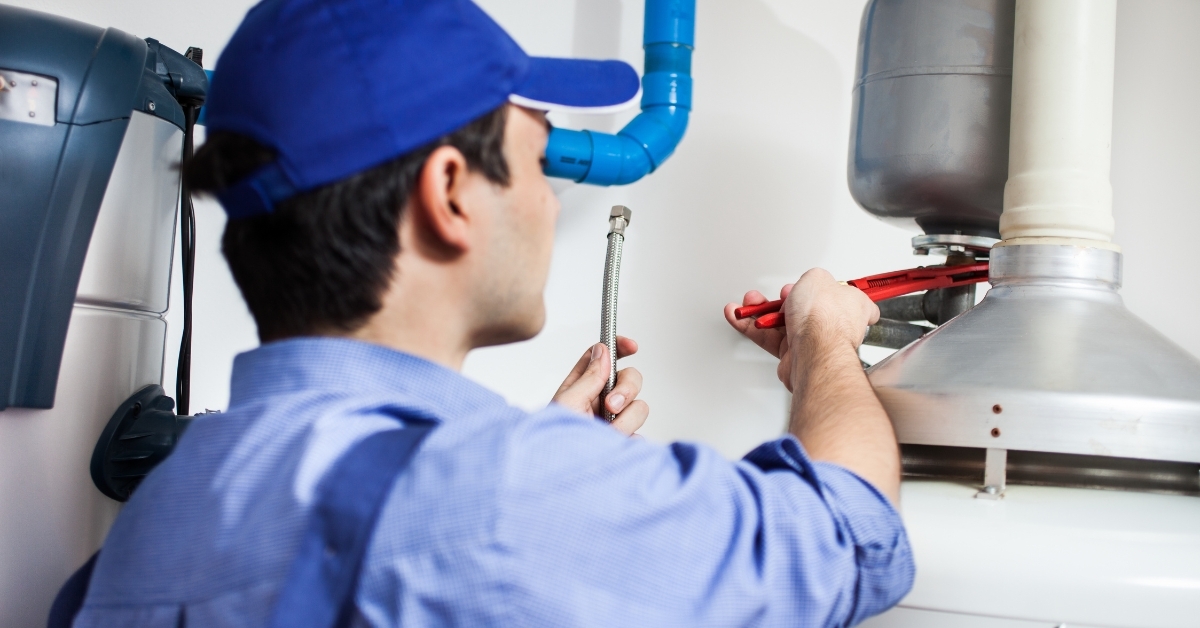There’s nothing worse than your water never making it past lukewarm when your want a nice, relaxing shower except maybe your hot water cutting out right in the middle of that shower. Hot water heaters quietly do their jobs, usually unseen, and nobody takes any notice of them until there’s a problem. Routine maintenance and checks can help prevent problems and extend the life of your appliance.

Common Signs of a Problem
No Hot Water: No hot water, running out of hot water quickly, or the water taking a long time to heat up are all signs that there’s a problem with the hot water heater.
Unusual Sounds: Although your hot water heater general will make some sound during its normal function, if you notice any sounds you haven’t heard before it can be a sign of an issue.
Unpleasant Smells: Your hot water heater shouldn’t smell. A foul odor can be a sign of bacterial growth due to sediment buildup inside the tank.
Leaking: Puddles and drips around your hot water heater should never be ignored. Even small leaks can be a sign of a big problem in the future if not addressed right away.
Maintenance
Inspection
It’s a good idea to regularly do a visual inspection of your hot water heater to assess it for any issues. Aside from the signs of a problem already discussed, you’ll want to keep an eye out for corrosion on pipes and valves. If it’s a gas heater, ensure that the draft hood is in good condition as well as the gas fittings. Once of the most important things to keep an eye on is the temperature pressure relief valve. This valve is usually located near the top of the unit and it serves to release water into the tank while also lowering the pressure in the tank. Basically, it regulates the temperature and pressure inside your hot water heater. A malfunction of your temperature pressure relief valve can be catastrophic, resulting in the tank exploding. If you notice or suspect and issue with this valve it should be addressed immediately.
Flush
Flushing your hot water heater is something you can often do on your own if you don’t want to hire it out. This is a yearly maintenance task that will make your heater more efficient and can greatly extend its life. You’ll want to first shut off the water supply and wait for the water to cool to avoid burning out the heating element and burning yourself with hot water. Drain a few gallons of water from the bottom of the tank and inspect for sediment. Sediment buildup in the tank can lead to a whole host of problems that can cause malfunctions and general inefficiency. It can also cause the heater to stop working altogether. If necessary, turn the thermostat down and drain the tank completely to clear it out, then fill it with fresh water. Don’t forget to turn the thermostat back up!
Hot water heaters are generally easy appliances to care for, quietly doing their jobs with very little maintenance necessary. Checking your hot water heater and flushing it at least once a year can still save you from unnecessary headaches in the long run.